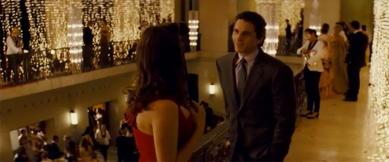A look to the past for BloomsburyFest 2013
This year’s Bloomsbury Festival takes a look back at the role Senate House played in World War II. We are turning its role as the Ministry of Information on its head and creating a Ministry of Communication – a place for communicating information and knowledge, not hiding or revising it.
Over the next few weeks we will explore the role of Senate House and Bloomsbury as a location for information and misinformation during the Second World War.
Senate House: From Controversy to Nanny McPhee
Senate House; an art deco monolith towering high above Russell Square is a warren of corridors and open spaces. It is also full of history. During the Second World War the building was home to the controversial Ministry of Information. As a place it is fair to say that it is one part fictional, and one part real.
George Orwell’s 1984 forever tinged Senate House with the accolade of authoritarianism. Hollywood and British television too has granted the building a fictionalised authoritarian stature by using it as a location of authority in such films as Batman Begins (as the lobby of the imposing Gotham Court of Justice) and Nanny McPhee and the Big Bang (a war office); and in television shows such as Dr Who and the 1981 adaptation of The Day of the Triffids.
Popular imaginings of the Ministry of Information in an Orwellian styled Ministry of Truth, however, doesn’t tell the real story nor necessarily represents the opinion of people about Senate House as home to war time news and propaganda.
The case for a Ministry of Information
The founding and locating of the Ministry of Information at Senate House can be traced back at least as far as October 1935, when a subcommittee of the Committee of Imperial Defence (CID) discussed plans to establish a new ministry concerned with presenting:
“…the national case to the public at home and abroad in time of war. To achieve this end it is not only necessary to provide for the preparation and issue of National Propaganda, but also for the issue of ‘news’ and for such control of information issued to the public as may be demanded by the needs of security.”

Sub-committee report, 27 July 1936, CAB 4/23 taken from Ian McLaine, Ministry of Morale: Home Front Morale and the Ministry of Information in World War II (London, 1979), p.12.
Although left unsaid in any official record Ian Mclaine, who authored the sub-committee report from which the above quote has been taken, believes that the idea came awkwardly enough from Germany – Goebbels’ Ministry of Propaganda is the only equivalent body to have existed at the time.
In essence the new ministry was to involve itself in five key areas of news and propaganda: The release of official news; Security censorship of the press (including films and the BBC); The maintenance of morale; The conduct of publicity campaigns for other departments; and Dissemination of propaganda to enemy, neutral, allied and empire countries.
A propaganda machine?
The Ministry of Information changed significantly over its lifetime, especially in the first few years, and many of these responsibilities listed moved elsewhere in that time. However, the perception of the British people was immediately drawn to its role as a propaganda machine. Nothing said could be fully trusted or believed. Some saw this as a necessary evil of wartime, others were less certain.
Next week we will take a look at the public perception of the Ministry in its first few years of existence and delve into the Senate House Library archives to find out what happened when they chose Senate House as their headquarters.
In the meantime please check out our Ministry of Communication Festival Highlights post for details of events at this year’s Bloomsbury Festival.
The Bloomsbury Festival runs from October 15-20, 2013. The full schedule of events at the School of Advanced Study is available here. We are also running a series of exciting competitions in October. Follow us on @SASNews for festival news and updates.
Finding the Ministry of Communication:
Senate House, Malet Street, London



Trackbacks/Pingbacks